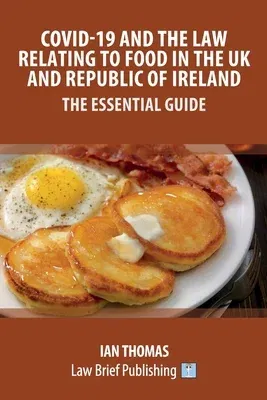This book is part of our new series of essential guides for legal
practitioners covering what you need to know about how various aspects
of UK law have been affected by the Covid-19 coronavirus pandemic.
DESCRIPTION
As has been well-publicised, "it is highly unlikely that people can
contract Covid-19 from food or food packaging". Nevertheless, the impact
of Covid-19 on the food industry and individual food businesses has been
devastating. Forced closures and limited re-openings have led to
innovative ways of coping and adapting to the new way of doing things.
However, it has not been plain sailing.
Food supply systems have come under significant pressure and this has
led to increased criminal activity to the detriment of consumers and
hard-working legitimate businesses. Diversification of activities
requires careful planning and a knowledge of the potential regulatory
and compliance consequences of making the change. Offering a new take
away service can fulfil business and consumer needs, but there might be
implications for how the food is prepared, delivered, served and
described. New hazards will be introduced and they must be assessed and
managed properly.
But on top of all that, as well as being food law compliant, food
businesses now have to follow strict laws and guidelines in order to
become Covid-secure. They have to assess the impact of Covid-19 on their
activities and in some respects, this can be very significant. There is
no shortage of material such as protocols and checklists available to
assist food business operators but they must be adapted to meet
individual needs and circumstances.
'Covid-19 and the Law Relating to Food in the UK and Republic of
Ireland - The Essential Guide' has something for everyone involved in
food. It provides examples of what can go wrong and why, and then
tentatively offers some solutions by applying first principles of food
law in order to protect consumers and the food business. This book is a
small but valuable addition to the debate on how to cope with this new
and deadly virus, the effects of which will be with us for some time to
come.
ABOUT THE AUTHOR
Ian Thomas is a dual-qualified specialist food lawyer practising in
England and Wales (barrister 1993) and in Ireland (solicitor 2006).
He advises on a wide range of non-contentious and contentious EU and
domestic food law matters including; food safety and hygiene, animal
welfare (including at the time of killing), food information, health and
nutrition claims, food supplements, borderline products, traceability,
product withdrawals and recalls, official controls and enforcement
powers.
Ian has substantial experience of advising or appearing in court to
represent clients facing enforcement actions, appeals and prosecutions.
Ian is an elected Fellow of the Society of Food Hygiene and Technology
(SOFHT).
He is a Contributing Lecturer to the PgC/PgD/MSc Food Regulatory Affairs
course (University of Ulster/University College Dublin) and a guest
lecturer on the Development of Food Law and Policy for the MSc Course in
Applied Culinary Nutrition at Technological University Dublin
(Tallaght).
Ian is a regular speaker at food law conferences and seminars and is a
member of the Food Law Group, the Food Safety Professionals Association
and is an affiliate member of the Institution of Occupational Safety and
Health. He is also a member of the Certification Committee of Excellence
Ireland Quality Association (the Q Mark).
He is a consultant with La Touche Training (Dublin) where he provides
training on law, practice, procedure, evidence and courtroom skills.
Ian is the author of 'A Practical Guide to the Law Relating to Food'.


